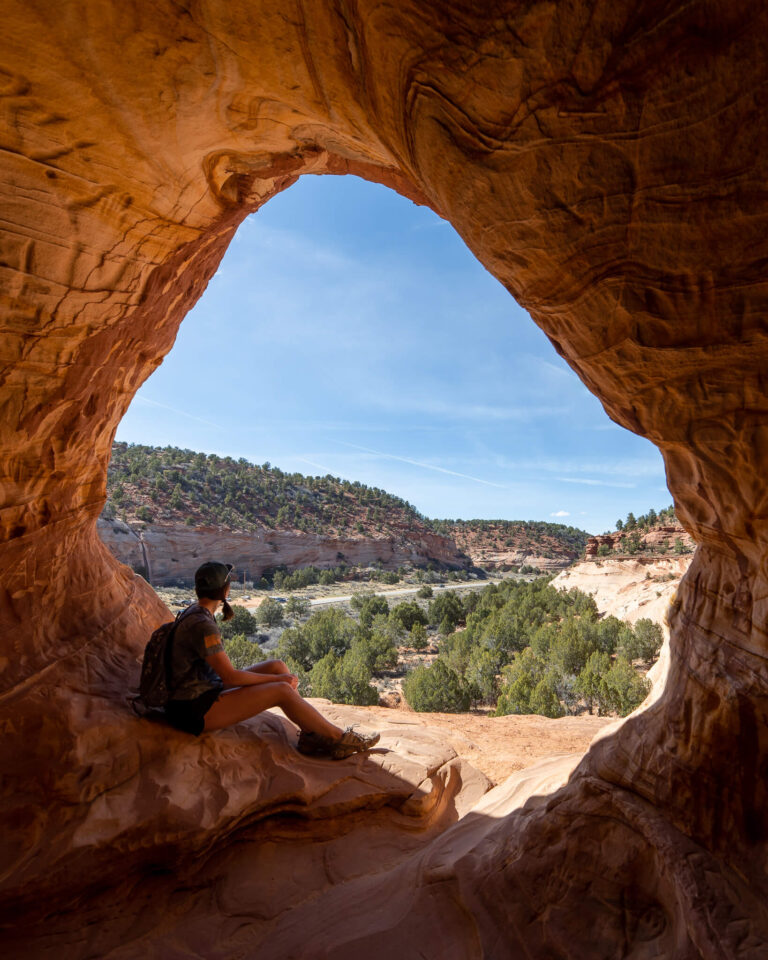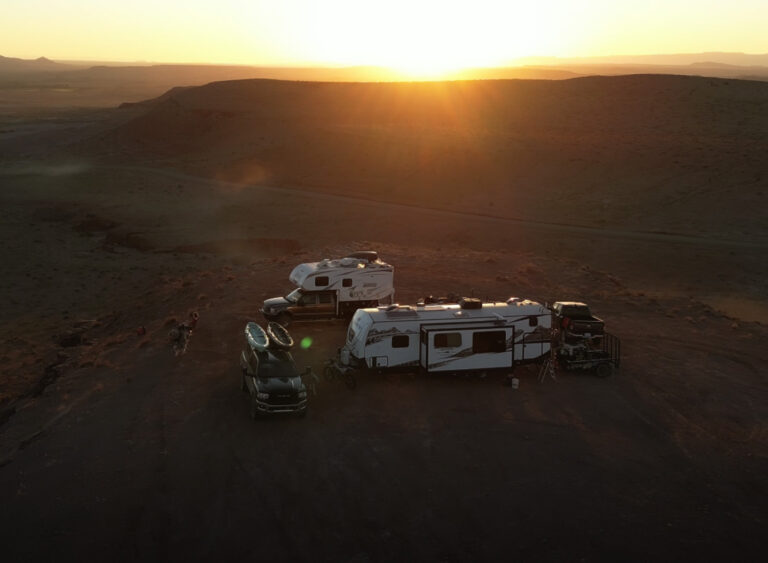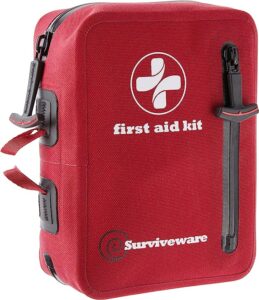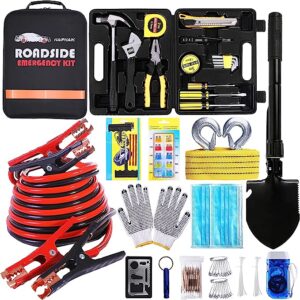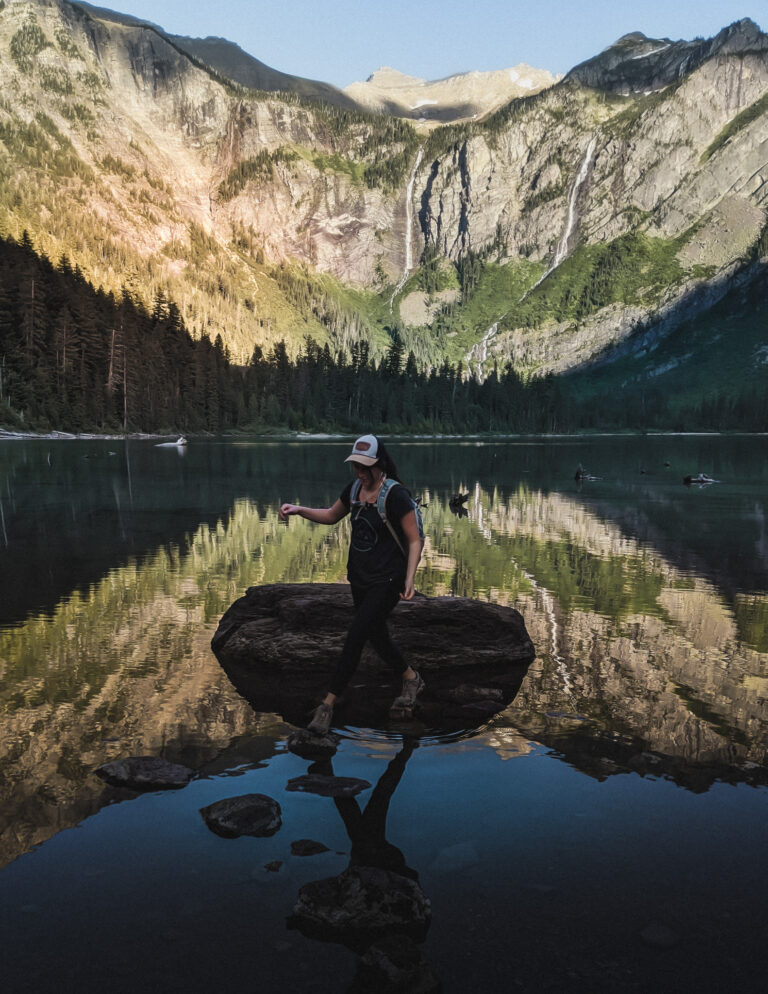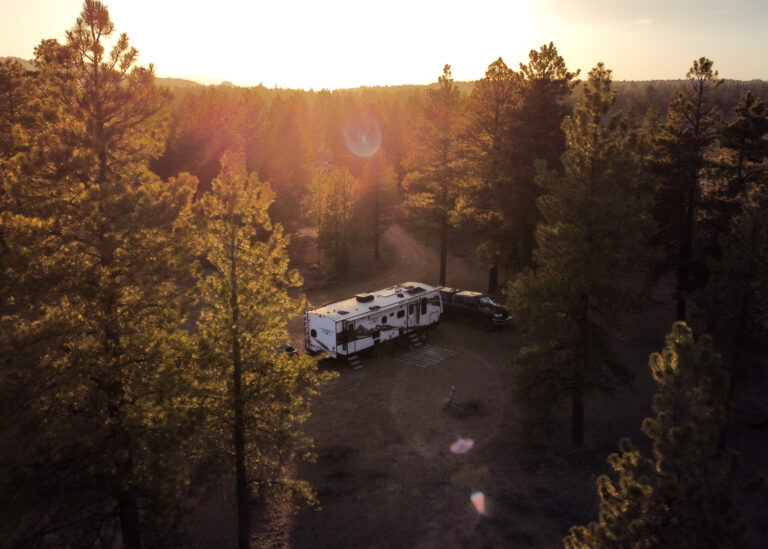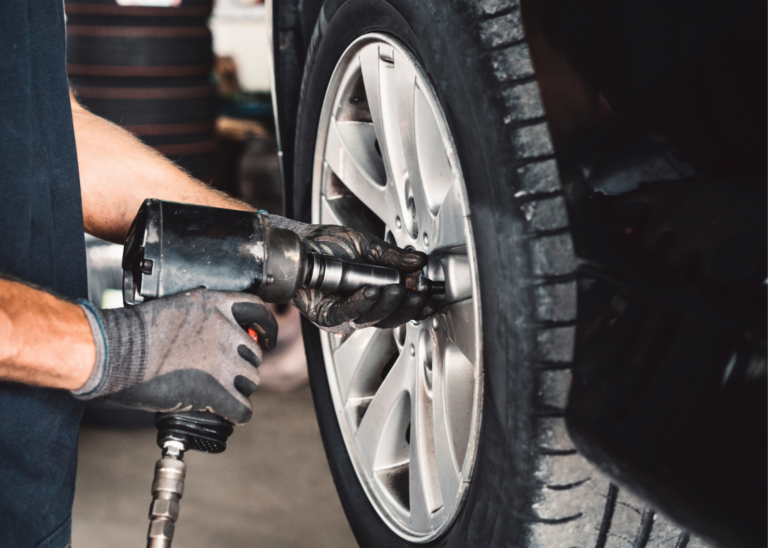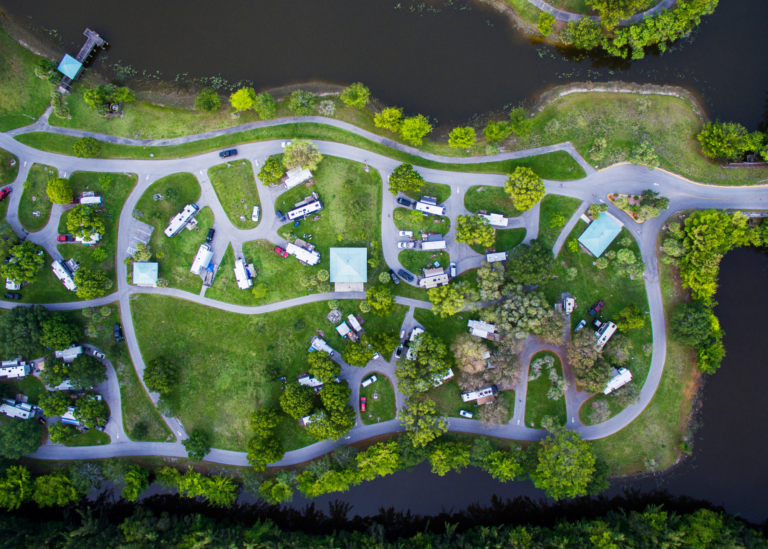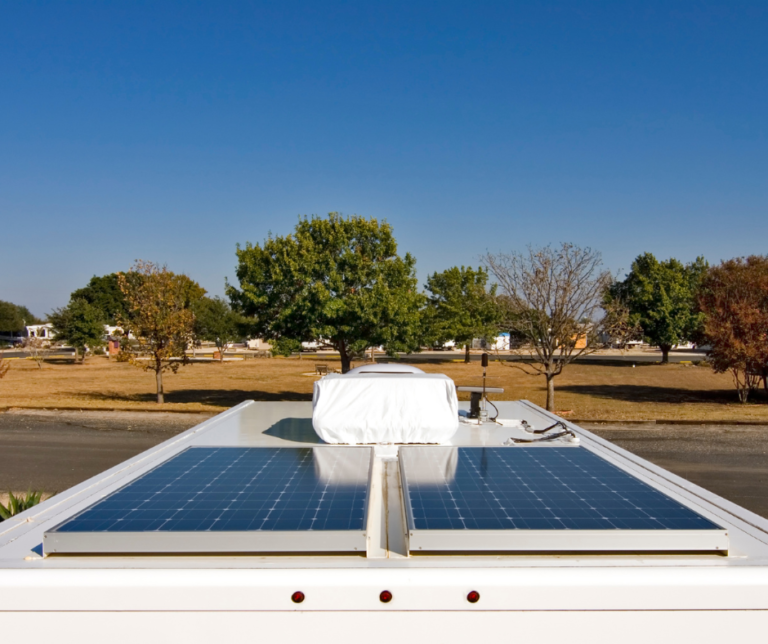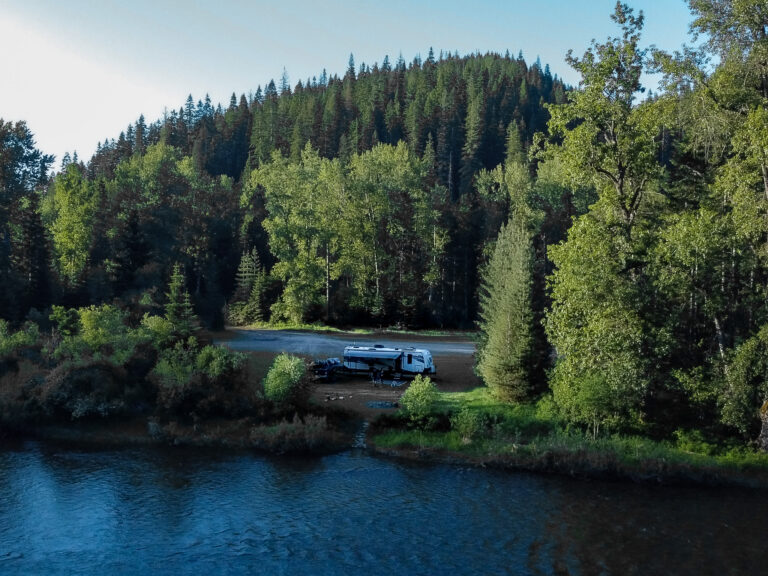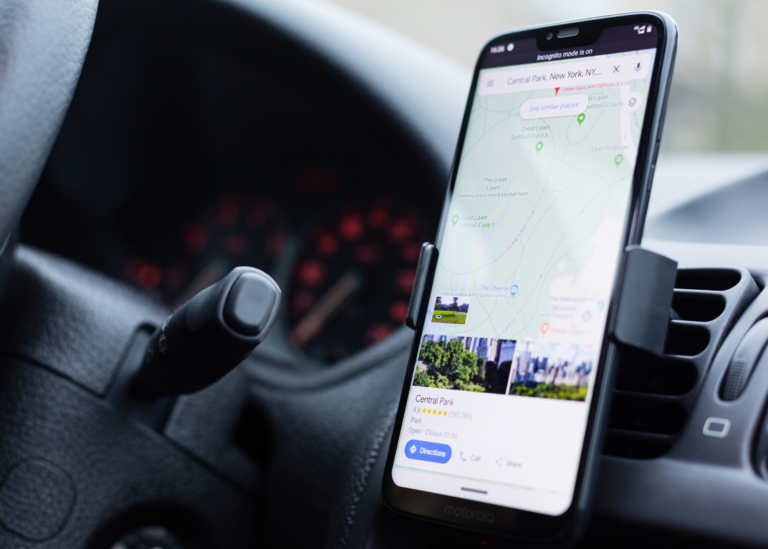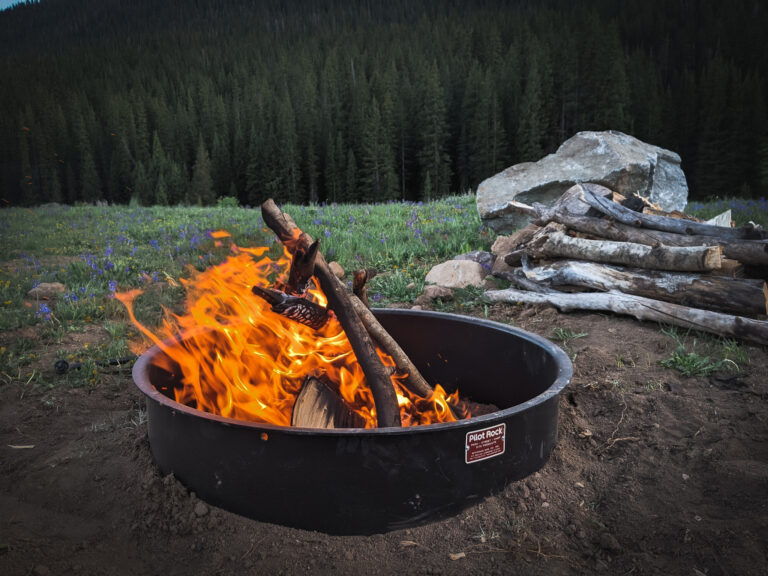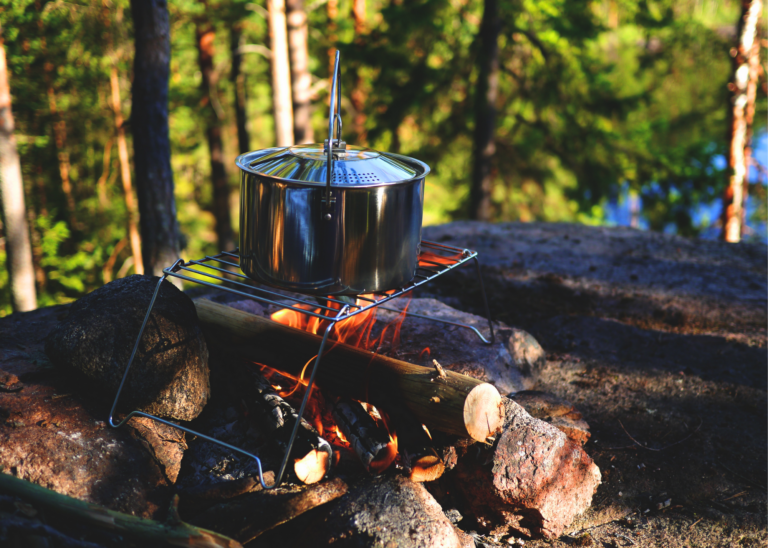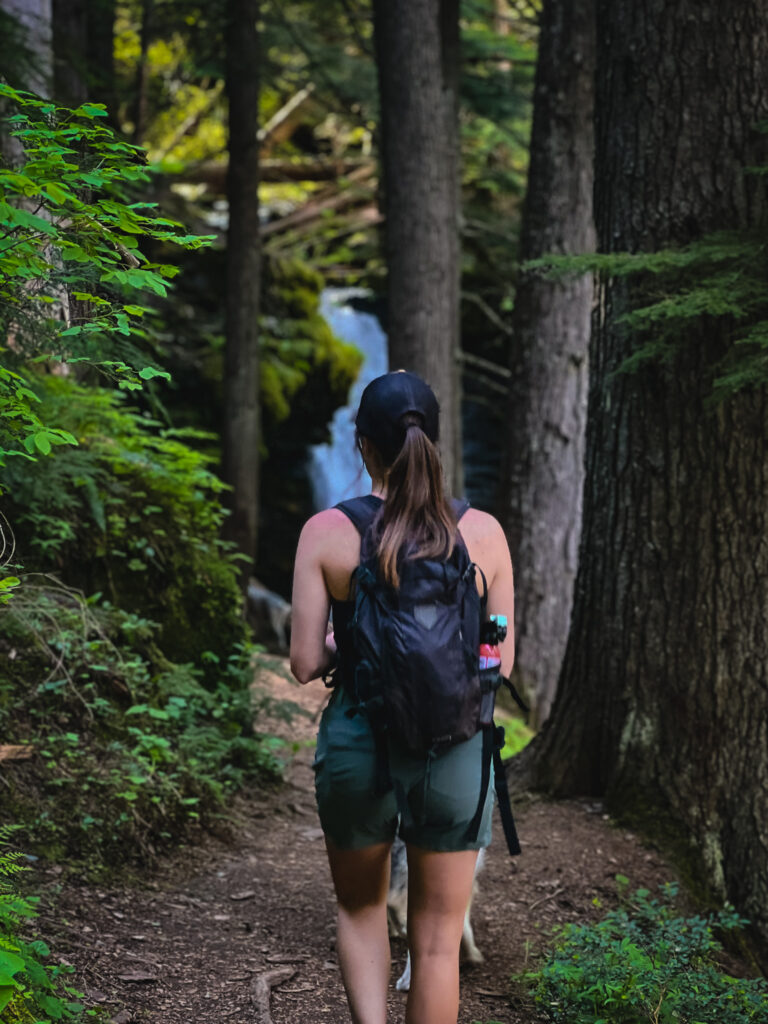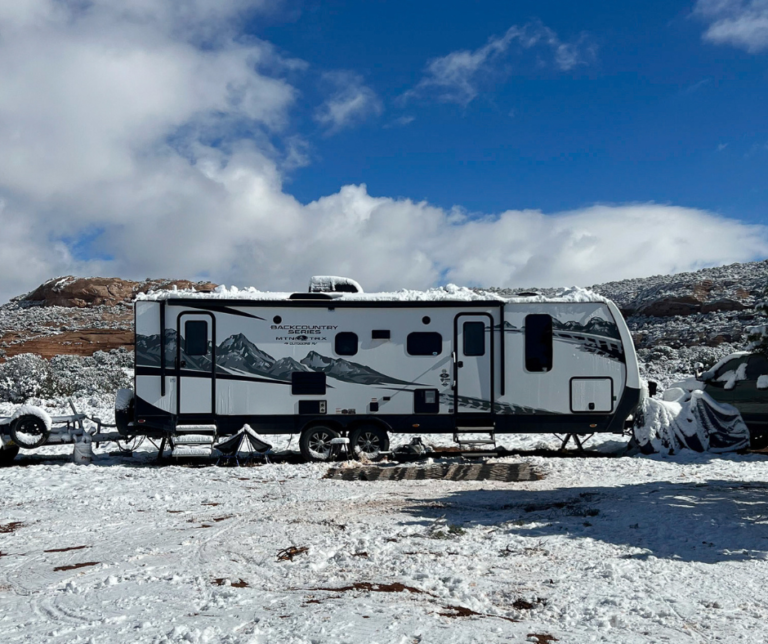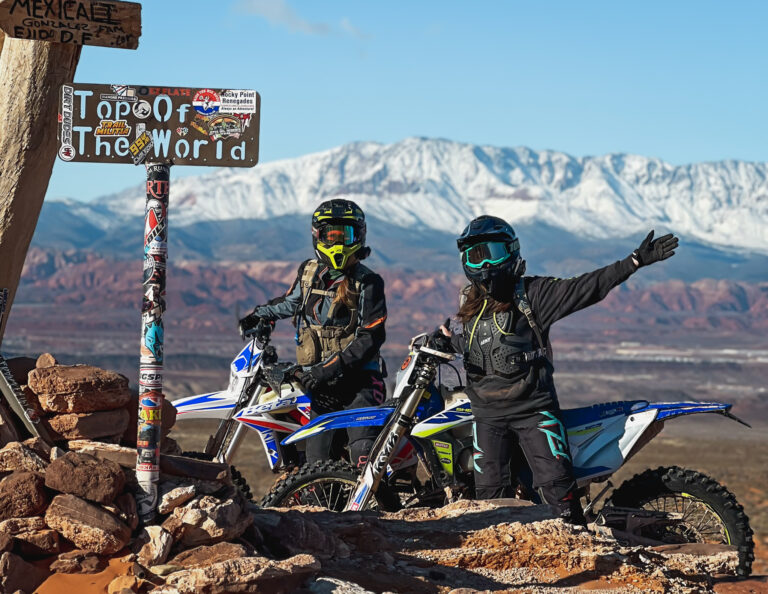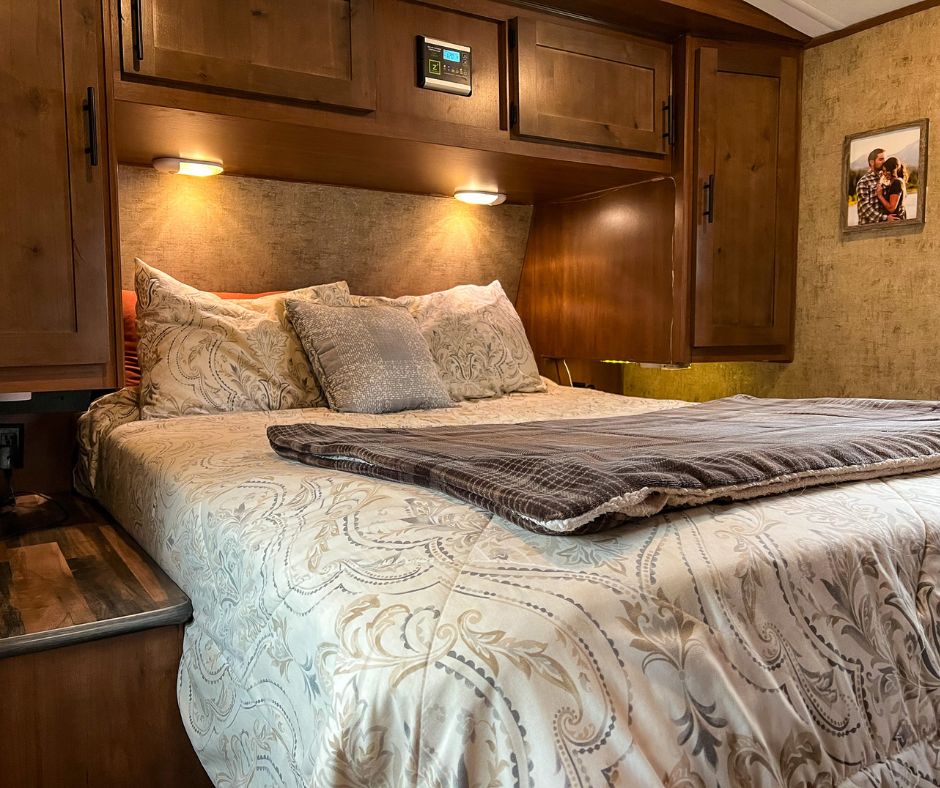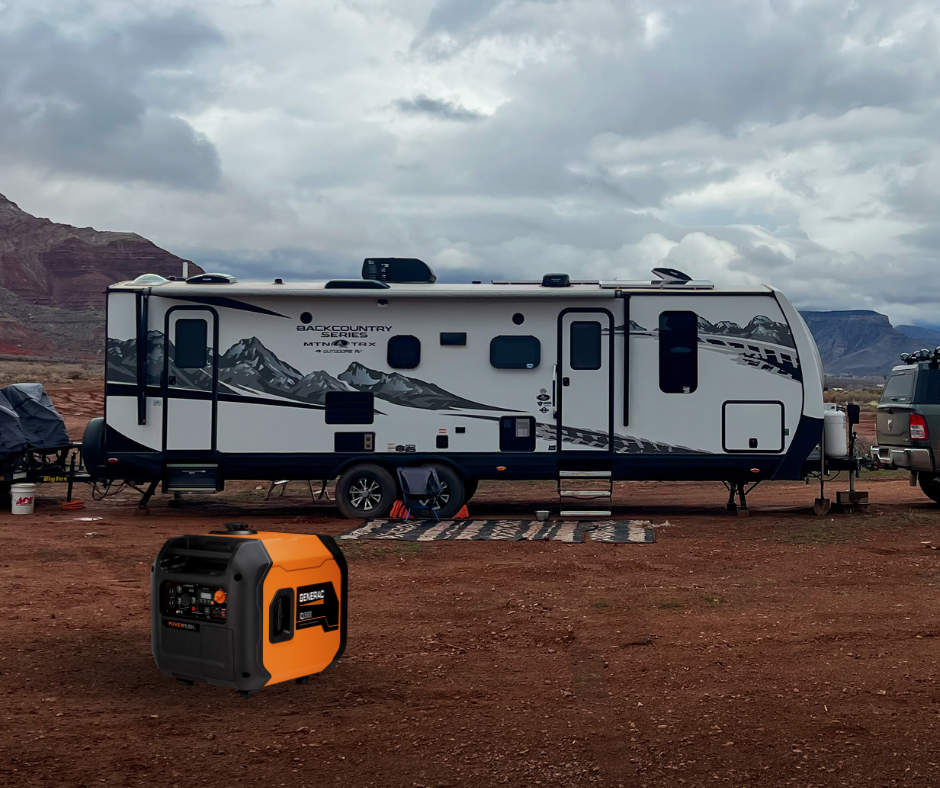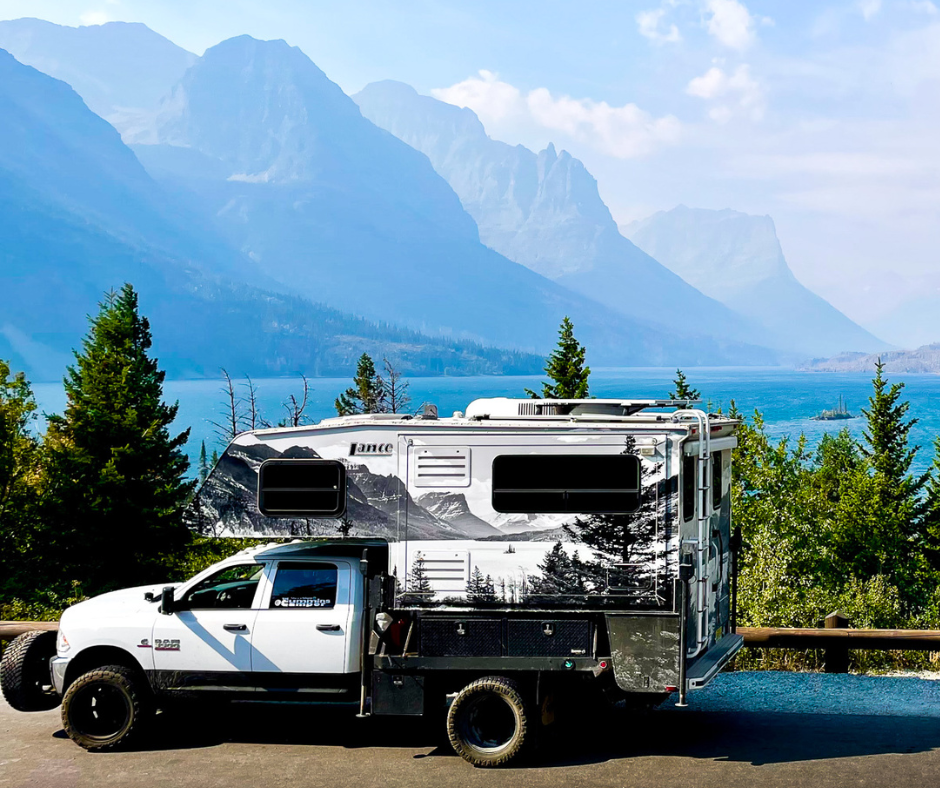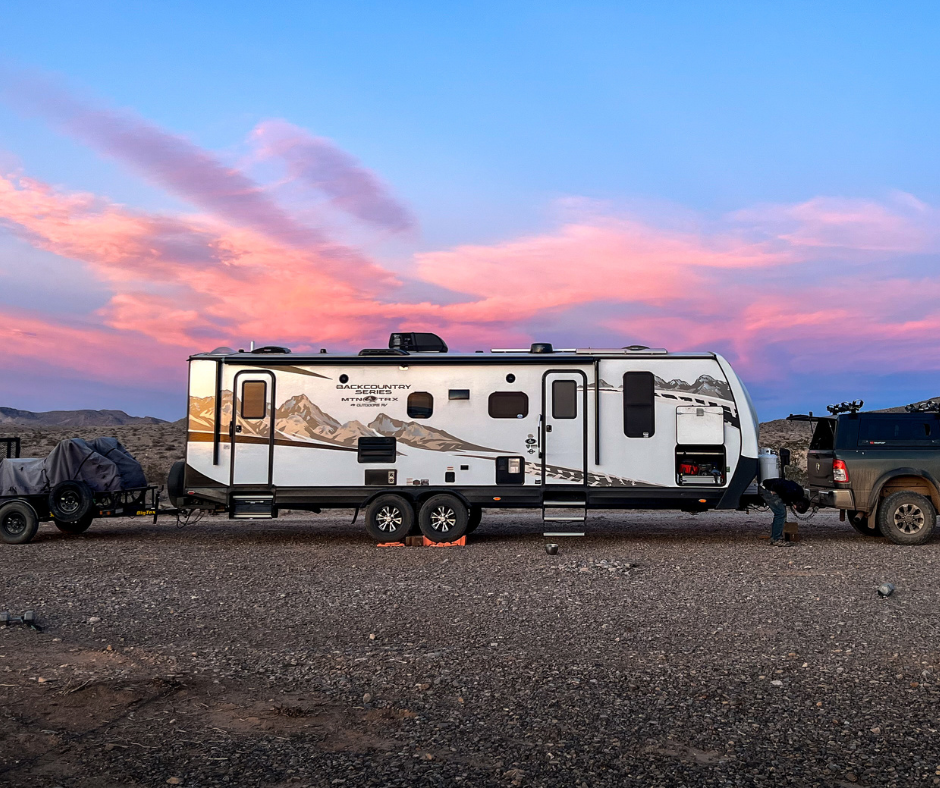20 Safety Tips for Solo RV Travel (Full-Time)
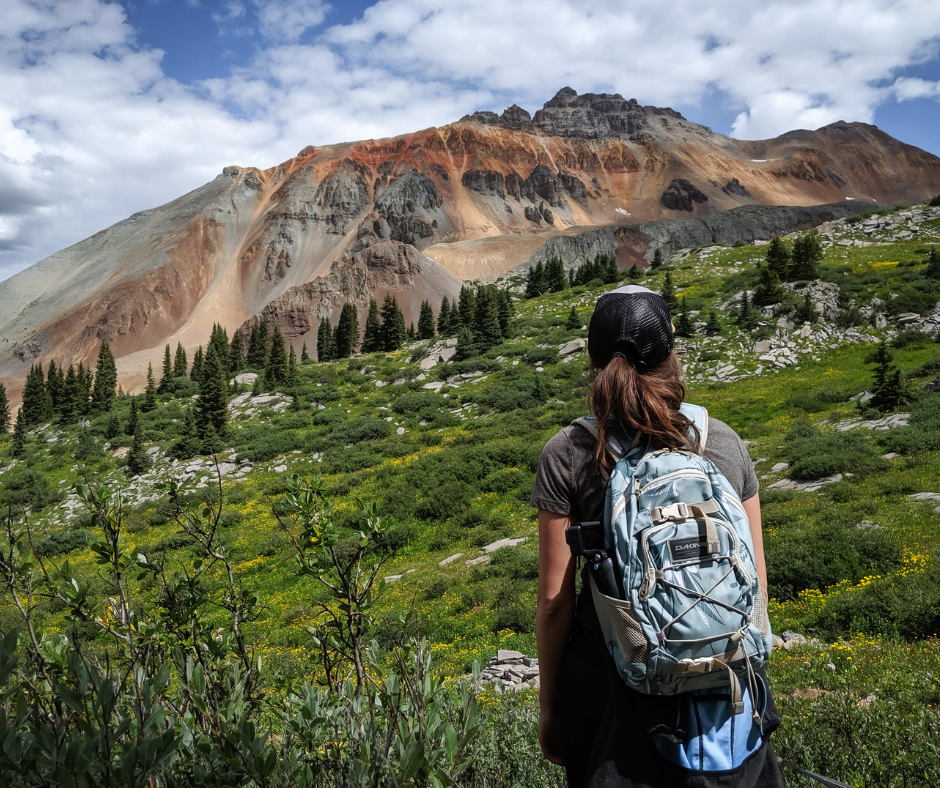
You’re thinking about living the full-time RV life, but you’re not sure if you can do it alone. Believe me, I get it. The thought of venturing into the unknown all by yourself may be stirring up some doubts and insecurities.
When I was in my 20s, I had a top tent and a dream and traveled from Colorado to Alaska with just me and my pup, Bella. It was an amazing experience, and I learned a lot along the way.
Trust me, I had my fair share of trials and tribulations traveling solo. From breaking down on Highway 101 along the Oregon Coast to realizing that eating mac n’ cheese loses its allure after the fifth consecutive night, I learned some valuable lessons about the art of solo traveling.
As my journey in life has progressed, growing older, wiser, and even finding a life partner, my experience of hitting the road full-time in an RV has taught me valuable lessons. I’ve compiled a list of tips to help you navigate the road with confidence and make the most of your solo RV travel.
Table of Contents
ToggleTips for Full-Time Solo RV Travel
1. Choose the right RV
Choosing the right RV is essential for a successful solo RV trip. You need to pick an RV that’s the right size for you, has all the features you need, and is easy to drive and maneuver.
Consider factors such as the RV’s length, height, and turning radius. Prioritize RVs known for their reliability and durability.
Research the reputation and reviews of different RV brands and models to ensure you choose one with a track record of dependable performance.
Class B (Sprinter Vans), built on a van chassis like the Mercedes-Benz Sprinter, are a preferred choice for solo RVers.
Class C motorhomes are larger than Class B vans but still provide a manageable size for solo travelers. They typically feature a distinctive over-the-cab sleeping area, along with additional living space and amenities.
Truck campers are another excellent option for solo RVers who want a compact and versatile setup. They are designed to be loaded onto the bed of a pickup truck and provide the advantage of detachability, allowing you to explore in your truck independently when the camper is offloaded.
Pull-behind travel trailers are a viable choice for solo RVers who prefer the option of unhitching their living quarters from their vehicle. Compact travel trailers like the Airstream Basecamp, R-Pod, or Casita are popular choices.
While new RVs can be expensive, buying a used RV is a great option for those on a budget.
Heck, we started our full-time journey in a self-converted cargo trailer. You don’t have to have the nicest camper to live a fulfilling life on the road.
Here are some things to consider when looking for an RV for full-time living solo:
Large water and waste tanks: Having large water and waste tanks is a must-have feature that allows you to camp for longer periods of time without the need for hookups. This is especially important if you enjoy boondocking or dry camping.
A rig pre-wired for solar power: Another important feature to consider is whether the RV is pre-wired for solar power. While this is not a requirement, having a travel trailer that is pre-wired for solar power makes it easier to set up solar panels and take advantage of the power of the sun to recharge your batteries.
Pro Tip: Four-season travel trailers usually have all these amenities and we highly recommend them for full-time RV living.
2. Master the Art of Route Planning
Before setting off on your trip, conduct thorough research on the destinations you plan to visit.
Look for attractions, campsites, RV parks, and points of interest along your route.
Consider factors such as scenic routes, road conditions, and availability of amenities like fuel stations and grocery stores.
Take advantage of mapping tools and GPS navigation systems specifically designed for RV travel. Apps and websites like Google Maps, RV Trip Wizard, or RV-specific GPS units can provide valuable information, including RV-friendly routes, low clearance warnings, and campground locations.
Plan your routes in advance, but leave room for spontaneity. Remember, unexpected detours often lead to the most memorable experiences.
3. Prioritize Safety First
When you’re out exploring on your own, safety should be a top priority. Invest in quality RV locks, install a reliable security system, and always be aware of your surroundings. It’s also a good idea to have emergency supplies on hand, including a first aid kit, fire extinguisher, and a well-stocked roadside emergency kit.
Invest in quality RV locks: Protecting your RV from potential break-ins is essential. Invest in high-quality locks for your doors, windows, and storage compartments. Consider using an electronic lock for added security.
Install a reliable security system: A reliable RV security system can provide an extra layer of protection. Look for systems that include features such as motion sensors, alarms, and surveillance cameras. These systems can deter potential thieves and alert you or authorities in case of any unauthorized access.
Let someone know your travel plans: Inform a trusted friend or family member of your itinerary, including your planned destinations and estimated timelines. Regularly update them on any changes to your plans.
Be aware of your surroundings: Stay vigilant and aware of your surroundings at all times. Park your RV in well-lit and secure areas whenever possible. When camping in remote locations, research the area beforehand to understand any potential safety concerns. Trust your instincts and, if something feels off or unsafe, consider relocating to a different spot.
4. Have emergency supplies on hand
As a solo RVer, being prepared for unexpected situations is crucial for your safety and peace of mind. One important aspect of preparedness is having emergency supplies on hand.
Whether you encounter a breakdown, inclement weather, or any other unforeseen circumstances, having the right supplies readily available can make a significant difference.
First aid kit: A well-stocked first aid kit should include items such as bandages, antiseptic ointment, pain relievers, and medical supplies tailored to your specific needs.
Fire extinguisher: Install a fire extinguisher in an easily accessible location within your RV. Ensure it is regularly inspected and maintained to guarantee functionality.
Roadside emergency kit: Equip your RV with a comprehensive roadside emergency kit that includes items like a spare tire, jack, jumper cables, flashlight, portable air pump, reflective triangles, basic tools, and extra water and non-perishable food items. Familiarize yourself with how to use these tools effectively.
5. Navigate unexpected breakdowns with Roadside Assistance
Navigating unexpected breakdowns as a solo RVer can be a challenging experience, but having access to roadside assistance services can provide you with peace of mind and help you deal with emergencies on the road.
Consider using apps like AAA, Good Sam Roadside Assistance, or Urgent.ly. These apps provide immediate assistance, towing services, and access to local service providers in case of emergencies.
Benefits include prompt response times, towing for RVs, flat tire assistance, battery jump-starts, fuel delivery, technical support, and trip interruption coverage.
Choose an app based on coverage areas, services offered, response times, and pricing structures. Check reviews and ratings for quality assurance. Review terms and conditions to ensure they meet your specific needs as an RVer.
6. Find Safe and Free Camping Options
Boondocking is the ultimate way to get off the beaten path. Unlike traditional camping, where you’re limited to designated campsites with amenities and hookups, boondocking allows you to camp on public lands such as BLM and National Forest lads without any modern conveniences.
And the best part? It’s completely free! That’s right, you can set up camp in some of the most beautiful and secluded locations without spending a dime.
But where do you find free camping spots, you ask? With camping apps like Campendium, Freecampsites.net, and The Dyrt, you can easily locate some amazing spots to park your RV.
7. Make a Budget (and stick to it)
Before you begin full-time RVing, it’s important to make a budget. This will help you to determine how much money you need to live on each month and will prevent you from overspending.
Be sure to factor in the cost of fuel, campground fees, food, and other necessary expenses when creating your budget. To help you get started, check out our guide to the cost of full-time living.
If you are looking for tips to make RV living ridiculously affordable, check out our guide!
8. Develop MacGyver-like Skills
Being a solo RVer means wearing many hats. From fixing leaky faucets to changing flat tires, embrace your inner MacGyver and learn to handle minor mishaps like a pro.
Here are a few supplies to have on hand to help you MacGyver your way through anything:
Multi-tool: A versatile multi-tool should be an essential part of your RV toolkit. It typically includes various tools like pliers, knives, screwdrivers, and bottle openers, allowing you to tackle a wide range of repairs and tasks.
Duct tape: Duct tape is your best friend in times of RV-related emergencies. It can be used for quick repairs on hoses, leaks, or even holding things together temporarily. Carry a roll of strong duct tape in your RV for emergencies.
Zip ties: Zip ties are another handy item that can be used for securing loose items, organizing cables, or even makeshift repairs. Keep a variety of sizes and strengths in your toolkit.
Basic hand tools: Have a set of basic hand tools such as a wrench, socket set, pliers, and screwdrivers. These tools can be used for simple repairs and adjustments.
WD-40 or silicone lubricant: WD-40 is a versatile lubricant that can help with squeaky hinges, loosening stuck parts, and protecting metal surfaces from rust.
Electrical tape: Electrical tape is useful for insulating wires, making temporary electrical repairs, and securing loose connections. It’s a good idea to carry a roll of electrical tape for electrical-related issues.
Spare fuses: Keep a selection of spare fuses specific to your RV’s electrical system. This ensures you can quickly replace blown fuses, minimizing downtime.
Portable generator: While not a tool per se, a portable generator can be a valuable asset in case of power outages or when you need extra electricity while boondocking. It can power your RV’s electrical systems or charge your batteries when needed.
Learn more about our favorite upgrades for full-time RV living to help make your experience more enjoyable and comfortable.
9. Join RVing Communities
Connect with like-minded individuals and fellow RV enthusiasts through online forums, social media groups, and local meetups. These communities can offer valuable advice, tips, and even lifelong friendships.
Plus, it’s always great to have someone to share campfire stories with and exchange tips on the best-hidden gems along the road.
Best RV Memberships
There are a ton of great options out there, but a few of our favorite campground memberships include:
Thousand Trails: This membership program offers access to a network of RV parks and campgrounds across the United States for a flat annual fee. They offer various membership levels and pricing options, making it possible to find an affordable plan that meets your needs.
Passport America: This membership program offers up to 50% off on camping fees at participating campgrounds in the United States, Canada, and Mexico. The membership fee is reasonable, and there are no restrictions on the number of times you can use the discount.
Escapees RV Club: This membership program offers discounts on camping fees, fuel, and other RV-related expenses. They also offer access to a network of RV parks and campgrounds, as well as educational resources and social events for members.
Harvest Hosts: This membership program allows RVers to camp overnight at participating farms, wineries, and breweries across the United States for a small fee. The annual membership fee is relatively low, and it can be an excellent way to save on camping fees while enjoying unique and memorable experiences.
10. Embrace the Power of Solar
Harness the sun’s energy and reduce your reliance on traditional power sources. Invest in solar panels for your RV to charge your devices, run appliances, and keep your batteries topped up.
Renogy offers high-quality solar panel kits designed specifically for RVs. Their kits typically include solar panels, a charge controller, mounting hardware, cables, and connectors.
Plus, their kits are modular, so you can expand and customize your setup as you please.
Easy installation? Absolutely! Even RVers with minimal tech know-how can set up these kits hassle-free.
11. Stay Connected on the Road
In today’s connected world, staying online while on the road is essential for many solo RVers who work remotely or simply want to stay connected with loved ones.
Fortunately, there are several reliable internet options for full-time RVers to keep you connected wherever your adventures take you.
One option is Starlink by SpaceX, offering satellite internet access even in remote areas.
Alternatively, you can use your smartphone as a mobile hotspot or invest in a Verizon Jetpack for dedicated Wi-Fi.
To boost your cellular signal, consider using cell boosters from WeBoost or Cel-Fi. Additionally, take advantage of free Wi-Fi hotspots at cafes, coffee shops, or bookstores like Barnes and Noble.
When you’re using public Wi-Fi, be sure to use a secure connection. You can do this by using a VPN or by connecting to a Wi-Fi network that you trust.
12. Get Tech-Savvy with Apps
Make your RV life easier with the help of technology. There are plenty of handy apps that can assist you on your journey. For example, use apps like Campendium to find the best RV parks and campgrounds, GasBuddy to locate the cheapest fuel stations, and AllStays to discover RV-friendly amenities like dump stations and propane fill-ups.
13. Embrace Minimalism
Living in an RV means downsizing, and trust me, it’s a liberating experience. Bid farewell to unnecessary clutter and learn to prioritize what truly brings you joy.
First, focus on decluttering and downsizing your belongings. Take the time to assess each item’s value and purpose in your life, keeping only what truly serves you and brings you joy. This process not only lightens your load but also allows for a more organized and functional living space.
Second, adopt a mindful approach to consumption. Before making purchases, ask yourself if the item is truly necessary and if it aligns with your values and priorities. By being intentional about what you bring into your RV, you can avoid unnecessary clutter and unnecessary expenses.
Another aspect of minimalism is maximizing the functionality of your space. Invest in multi-purpose items and clever storage solutions that optimize the available area in your RV. This way, you can make the most of every square inch and ensure a clutter-free living environment.
14. Master the Art of Quick Meals
Cooking gourmet meals in a small RV kitchen can be a challenge. Embrace the art of quick and easy meals that don’t require too many ingredients or preparation time. One-pot wonders like hearty soups, stir-fries, or even gourmet hot dogs with creative toppings can save you time and satisfy your taste buds.
15. Keep in touch with loved ones
Although solo RVing can be an incredibly freeing experience, it’s still important to keep in touch with your loved ones back home.
Let them know where you are and when you expect to arrive at your next destination; that way, if something does happen, they’ll know where to start looking for you.
16. Stay Fit on the Go
Maintaining an active lifestyle on the road is essential for both physical and mental well-being. Incorporate exercise into your daily routine with activities like hiking, biking, or even yoga in the great outdoors.
You can also look for gym chains like Planet Fitness, Anytime Fitness, or 24 Hour Fitness that offer 24-hour access and have locations nationwide. Not only can you work out and stay in shape, but these gyms also offer the ultimate luxury for a full-time RVer—a long, hot shower.
17. Prepare for Weather Extremes
Mother Nature can be unpredictable, so be prepared for extreme weather conditions. Have proper insulation for colder climates, invest in fans and portable air conditioners for hot summers, and always check weather forecasts before planning your activities.
And when the weather doesn’t cooperate, it’s the perfect excuse for a movie marathon day or a cozy reading session with your furry companion.
19. Be aware of the risks of social media
In the digital age, social media has become a powerful tool for staying connected and sharing your solo RV adventures with the world. However, it’s crucial to be aware of the potential risks that come with using social media platforms.
While it may be tempting to showcase your RV journey by displaying your social media handle on your rig, it’s not the wisest move from a security standpoint. Sharing your handle openly on your vehicle can make you an easy target for unwanted attention or even potential security threats.
Additionally, when sharing your RV experiences online, be cautious about revealing too much personal information, such as your exact location or detailed travel plans.
20. Embrace the Unpredictability
Last but not least, remember that the beauty of RV living lies in embracing the unexpected. No matter how meticulously you plan, life on the road has a way of throwing curveballs your way.
Embrace those detours, spontaneous encounters, and the occasional wrong turns—they often lead to the most extraordinary memories.
And when all else fails, just laugh it off and remember that a wrong turn can become a scenic adventure.
Tell us your Solo Travel Tips!
We’d love to hear your solo travel tips! Whether it’s advice on staying safe, finding hidden gems, or navigating the joys and challenges of solo travel, your tips can make a real difference for fellow solo adventurers.

Keep Reading!



